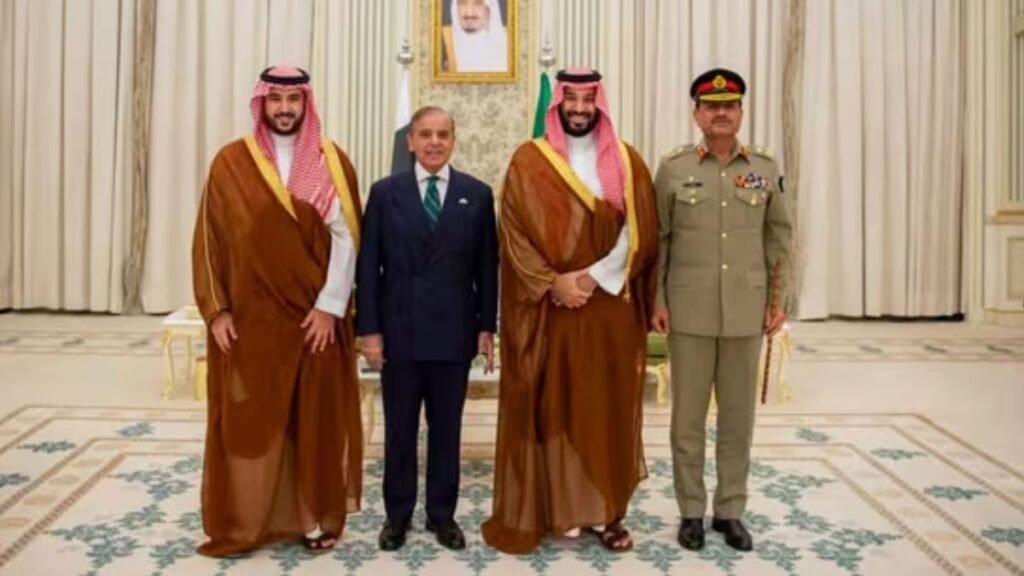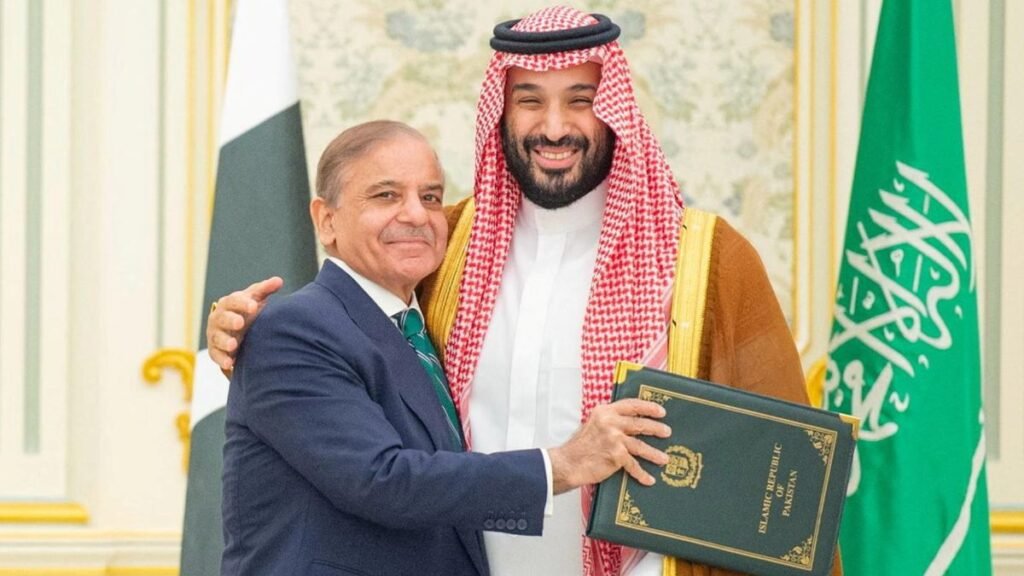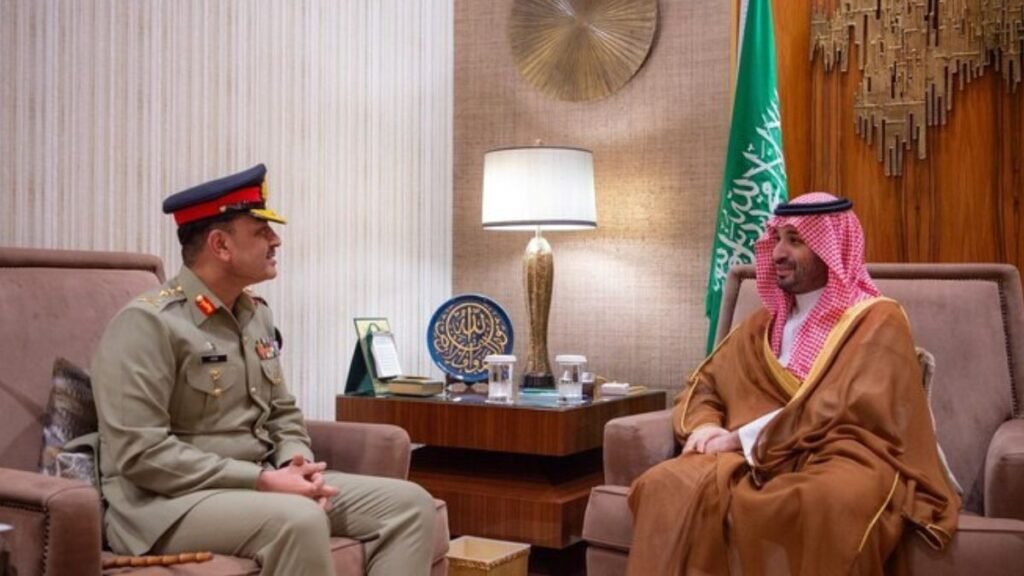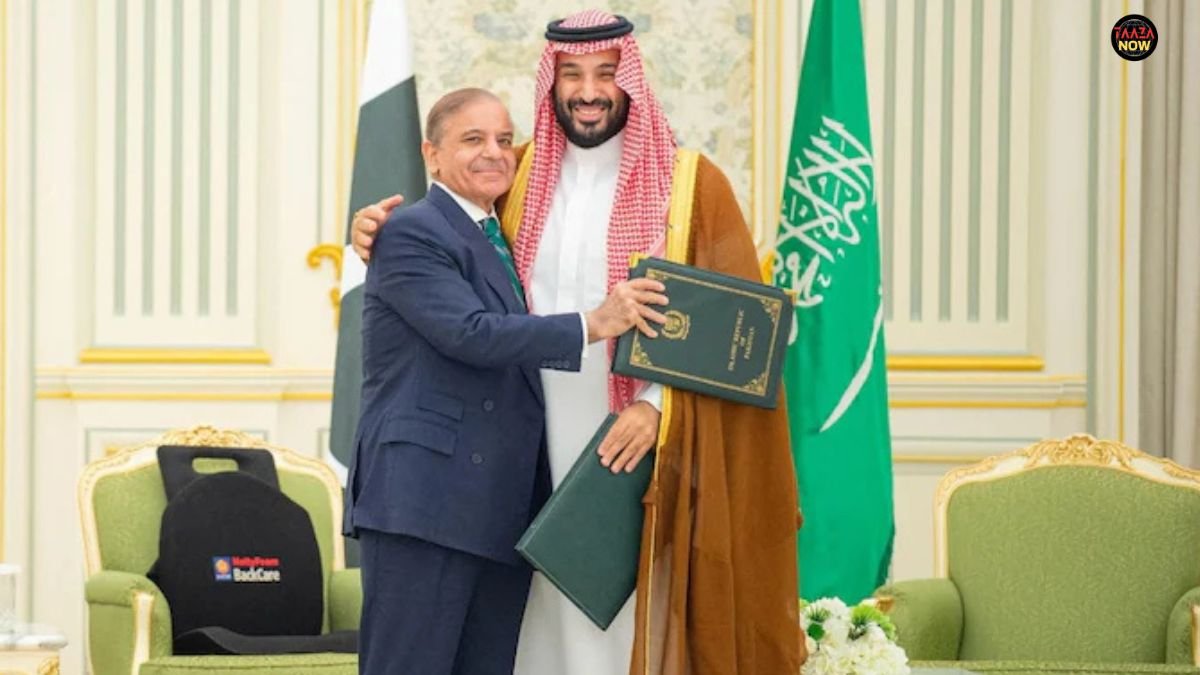The signing of the Pakistan-Saudi Arabia defence pact has created ripples across South Asia and beyond. While the deal has been hailed by Islamabad and Riyadh as a “strategic mutual defence” partnership, India’s opposition parties have raised serious concerns over its implications for national security. With shifting alliances and emerging power dynamics in the Middle East and South Asia, this pact is not just a bilateral agreement but a geopolitical development with global consequences.
Congress Raises Alarm Over Defence Pact
In India, the Congress party has openly criticised Prime Minister Narendra Modi, arguing that the Pakistan-Saudi Arabia defence pact represents yet another setback for his foreign policy strategy. According to Congress spokesperson Jairam Ramesh, the agreement marks a failure of the “personalised diplomacy” that Modi has pursued with global leaders.

Ramesh pointed out that the pact was signed soon after several key international developments: the suspension of Operation Sindoor, a high-profile lunch hosted by U.S. President Donald Trump for Pakistan’s military leadership, and Chinese President Xi Jinping’s opening of secret defence facilities to Pakistani President Asif Ali Zardari. He noted that the Saudi deal adds to a growing list of events that challenge India’s diplomatic position in the region.
What the Pakistan-Saudi Arabia Defence Pact Means
The Pakistan-Saudi Arabia defence pact was signed during Pakistani Prime Minister Shehbaz Sharif’s official visit to Riyadh. He met Crown Prince Mohammed bin Salman, and both leaders formalised the agreement through a joint statement.
The core of the pact is straightforward: any attack on either Pakistan or Saudi Arabia will be considered an attack on both nations. This effectively places both countries in a mutual security alliance, promising joint deterrence and cooperation in case of external aggression.
Also Read: A Source of Admiration: Giorgia Meloni Wishes PM Modi a Happy 75th Birthday
The joint statement emphasised that the pact reflects the nations’ commitment to regional peace and security while developing military cooperation in various sectors. Analysts argue that the agreement could enhance Pakistan’s standing in the Muslim world, while for Saudi Arabia, it strengthens military ties outside of its traditional Western partnerships.
Timing of the Agreement
The timing of the Pakistan-Saudi Arabia defence pact is also significant. It comes just days after an Israeli strike targeting Hamas leadership in Qatar, one of the Gulf’s major political players and a key U.S. ally. This backdrop makes the Riyadh-Islamabad defence tie-up appear as part of a broader repositioning of alliances in the Middle East.

For Pakistan, the deal provides much-needed diplomatic support amid ongoing tensions with India and Afghanistan. For Saudi Arabia, it signals a willingness to expand its security partnerships beyond its existing cooperation with Western powers, especially the United States.
India’s Concerns About the Defence Pact
India has been cautious in its official response. Ministry of External Affairs spokesperson Randhir Jaiswal stated that New Delhi will carefully study the Pakistan-Saudi Arabia defence pact to evaluate its implications for India’s national security, as well as for regional and global stability.
From India’s perspective, the biggest worry is that such an agreement may embolden Pakistan in its strategic ambitions. With Saudi Arabia offering explicit defence support, Pakistan could adopt a more assertive stance in its foreign policy. This could complicate the already fragile security situation in South Asia, especially in Kashmir.
Impact on India-Saudi Relations
The Pakistan-Saudi Arabia defence pact also raises questions about the future of India-Saudi relations. Over the past decade, India has made significant efforts to strengthen economic and strategic ties with Saudi Arabia. Modi’s visits to Riyadh were widely covered as breakthroughs in bilateral cooperation.

However, the new agreement between Pakistan and Saudi Arabia could potentially shift the balance. While Riyadh is unlikely to want strained ties with New Delhi, its commitment to defending Pakistan militarily introduces new complexities. India will now have to navigate this triangular relationship more carefully, ensuring that its ties with Riyadh remain stable while preparing for any long-term strategic challenges.
Regional Power Dynamics After the Pact
The Pakistan-Saudi Arabia defence pact will likely influence regional power dynamics in several ways:
- Strengthening Pakistan’s Position: With Saudi support, Pakistan gains more leverage in South Asia and the Muslim world.
- Middle East Alliances: The pact signals Riyadh’s openness to diversify its defence partnerships, possibly reducing its reliance on the United States.
- India’s Security Calculations: India may now need to rethink its regional defence strategies and engage more deeply with partners like the United States, UAE, and Israel.
- China’s Role: Given Pakistan’s close ties with Beijing, Saudi Arabia’s alignment with Islamabad indirectly strengthens China’s influence in the Gulf.
Historical Context of Saudi-Pakistan Ties
The Pakistan-Saudi Arabia defence pact is not a sudden development but rather the culmination of decades of cooperation. Saudi Arabia has long provided Pakistan with financial assistance, oil supplies, and political backing. In return, Pakistan has offered military expertise, training, and even stationed troops in the kingdom during times of crisis.
Also Read: Trump Xi Beijing Summit 2025: Will the Leaders Meet Amid Trade and Fentanyl Tensions?
What makes this pact different is the explicit clause that an attack on one will be treated as an attack on both. This formalisation elevates the partnership to a new level of strategic commitment.
Global Implications of the Pact
The international community is also closely watching the Pakistan-Saudi Arabia defence pact. For the United States, which has long been a key security partner for Riyadh, the deal signals a shift in Saudi foreign policy priorities. For Israel, it complicates its security calculus in the region, especially with ongoing tensions involving Hamas and other groups.
For China, the pact is a positive development since it strengthens one of its closest allies, Pakistan, while bringing Saudi Arabia closer into its orbit of influence.
Taazanow.com- Click Here

